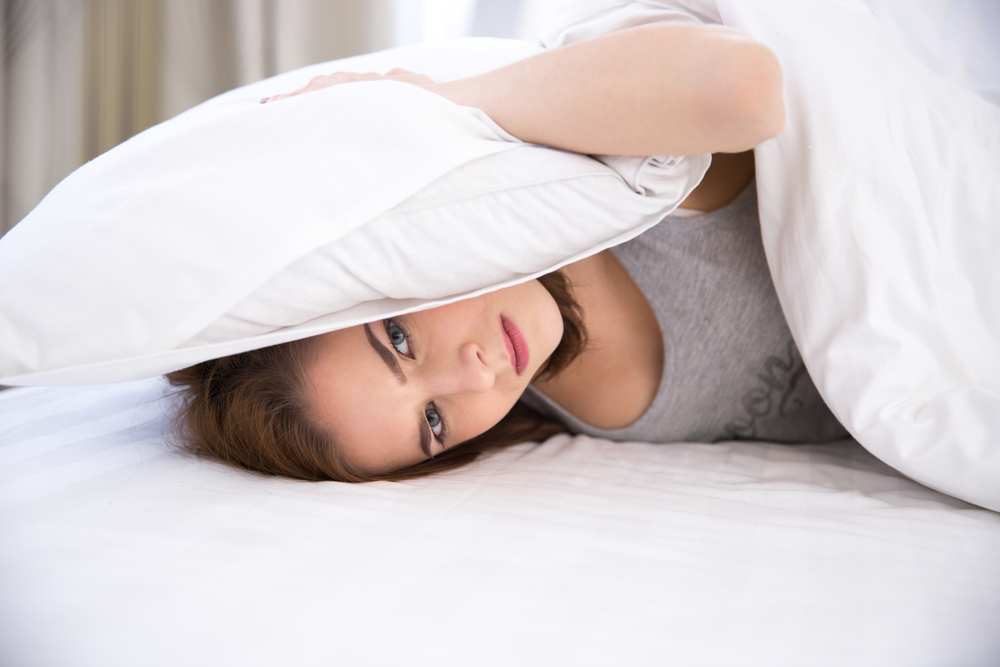
If you find getting a good night’s sleep to be more difficult compared to most people, here are several tips and techniques that you can apply to help improve your chances of getting that sweet ‘Z’ and feeling fully charged for the next day.
Simple Ways on How to Improve Sleep Quality
Below are tips and techniques that you can apply to your daily lifestyle and routine to help ensure you get the best possible sleep. These tips don’t include any medication, so you can rest easy knowing that each entry in this list is natural and safe while also providing the best possible benefits.
Maintain a Fixed Sleep-Wake Cycle
This is the most vital aspect to remember to ensure that you won’t experience any difficulty sleeping at night. Sleep-Wake cycle or the circadian rhythm is our body’s internal clock that regulates our sleep. Think of it like an internal alarm clock. The circadian rhythm pretty much signals our brain when to sleep and when to wake up.
To keep your circadian rhythm in check, make sure to always sleep on time and at the same time every day. How do you know if your circadian rhythm needs some “fine-tuning”? If you need an alarm clock to wake you up daily, you need to set your bedtime earlier.
For those who have varying work schedules that alternate between day and night shift, the circadian rhythm will be in a disjointed state. Most will opt to sleep in during the day on weekends, but this is not recommended if you wish to maintain an excellent sleep-wake cycle rhythm.
It is better to take power naps during the day and get the proper sleep at night. Speaking of naptime, the optimum period of naps should be between 15 to 20 minutes. This should give your body and mind a good boost of energy to get you through the day.
Increase Exposure to Natural Sunlight and Reduce Exposure to Blue Light in the Evening
Exposure to natural sunlight during the day helps improve the quality of the circadian rhythm. Not only does natural light trigger hormones that boost daytime energy, but it also helps increase sleep quality and duration. Studies have shown that people who get the proper amount of exposure to natural light during the day manages to improve their sleep quality and reduced the time to fall asleep to as much as 80%.
On the flip side, you should try and avoid exposure to blue light in the evening. Blue light is the wavelength that generates higher levels of energy. Blue light is present in all electrical device that has a screen (e.g. smartphones, tablets, televisions) which makes avoiding exposure virtually impossible nowadays.
Extended exposure to blue light at night can trick your brain into thinking that it is day time. Hence, the difficulty in trying to get some sleep. If you can’t avoid exposure to blue light in the evening, here are several steps that you can take to dampen the level of blue light exposure:
Wear anti-blue light eye wear.
Download and install apps that reduce or even block blue light on your device.
Turn off the TV, tablet, and smartphone at least an hour before bedtime.
As you can see, light is the main factor when regulating the circadian clock. Increase your exposure to sunlight to improve sleep quality and significantly reduce exposure to blue light in the evening.
Improve the Quality of Your Sleeping Environment
 If your bedroom is a cluttered mess, it can be quite tricky to relax during bedtime. The bedroom should be able to provide these three core elements to improve sleep quality:
If your bedroom is a cluttered mess, it can be quite tricky to relax during bedtime. The bedroom should be able to provide these three core elements to improve sleep quality:Quiet
Cool
Dark
First off, make sure that your room offers a peaceful and relaxing environment. If you can’t avoid certain noise pollution in the evening, you may want to use earplugs to help dampen the noise. As for the ideal room temperature, 18° C is considered the sweet spot that offers the most comfortable experience.
Your bed/mattress should also provide adequate posture support to avoid experiencing soreness during and after sleep. However, mattress comfort is subjective as some prefer ultra-soft ones, while others opt for substantial mattresses. Experiment and try out different types of beds to pick the right one for you.
Another simple yet highly effective technique I can offer is to exclusively attribute your bed to sleep and, for couples, sex. By this I mean, do not use your bedroom as your workspace. The bedroom should equate to relaxation and sleep. This will help prep your brain to unwind the moment you enter the bedroom.
Do Activities that Will Help your Prepare for Bedtime Both Physically and Mentally
There are several ways to prep your body and mind for bedtime. Here are a couple of methods you can employ to help you get ready for bedtime and cut the time before you fall asleep by a considerable margin.
Here are a few examples of activities that can help you relax and reach that sweet state of sleep faster:
Take a warm bath about an hour or two before bedtime as the warm temperature can help release built-up tension in your body.
Do some light to moderate exercises at least three to four hours before bedtime. This should help you spend that extra reserved energy left to prep your body for rest/sleep.
Meditation is another technique you can practice to help elevate your sleep quality. Other examples besides meditation that proves to be quite beneficial in improving sleep quality include:
Deep breathing exercises
Yoga
Getting a massage
Reading books
Listening to relaxing music or audio such as rainfall, white noise, beach sounds, etc.
The activities listed above are known to help improve overall sleep quality. All of which can also be done today without any need for extra preparation.
Conclusion
There are several ways to improve your sleeping experience, unless you are suffering from a type of sleep disorder. In that case, you need to start with a visit to your Primary Care Doctor or call us here at Alaska Sleep Clinic to speak with one of our board-certified sleep specialists. Some of these tips might require a shift with your lifestyle, but if the effect is a good night’s sleep, I say, go for it.









